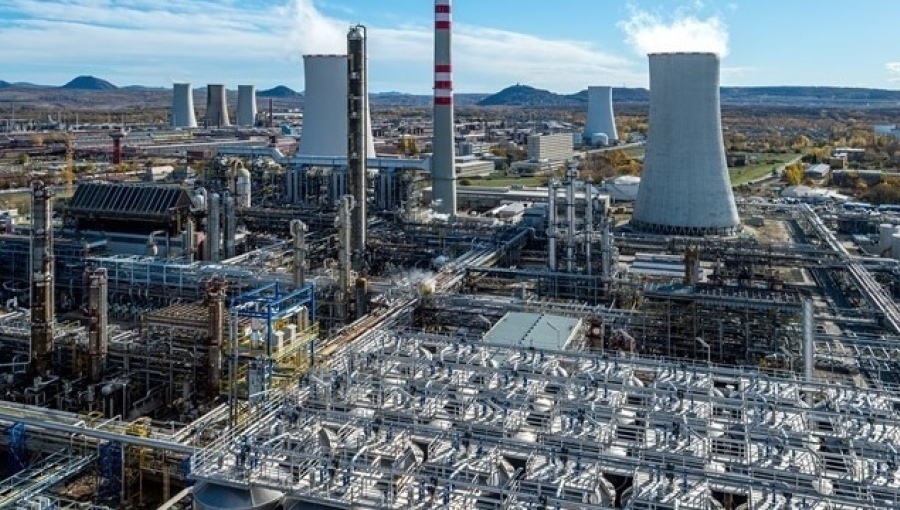Czechia to open oil reserves after Russia halts Druzhba pipeline flows

The Czech state is prepared to lend up to 330,000 tonnes of oil to Orlen's Litvinov refinery from its reserves in response to Russia's halt to crude flows via the Druzhba pipeline.
“The drawing of this loan will occur if the [oil flow from the] Druzhba pipeline is not restarted in the coming days,” said Pavel Švagr, the head of the state material reserves company SSHR.
“This means that the Czech market will continue to be supplied, and there is no reason for a speculative increase in fuel prices,” Švagr was quoted as saying by the Czech Press Agency (ČTK).
Oil imports from the Druzhba pipeline represent some 58% of all oil imports to the country, which has reserves of oil and oil products for 86 days, ČTK noted.
Earlier, following the cabinet session on December 4, the Czech Minister of Industry and Trade Lukáš Vlček (Mayors and Independents – STAN) told the media that the opening up of state reserves is a preventive measure in case the Orlen-operated Litvínov refinery, which still processes Russian crude, runs out of its current stock.
Czech cabinet members reiterated the halt does not pose a problem for the country.
“Russians are playing again,” Václav Bartuška, Czech government envoy for energy security stated, adding that oil continues to flow to Hungary and Slovakia.
“Czechia needs to tell Russia now that we don’t see a single reason to be worried – we have reserves, pipelines from the West and we don’t see a single reason to talk to them” (Russia), Bartuška told Czech media.
Because of their dependency on Russian oil supplies, Czech, Slovakia and Hungary all have an exemption to import Russian crude oil, with the exemption having no expiry date but being subject to periodic review by the European Commission.
Separately, Czech has an exemption to import petroleum products refined from Russian oil in Slovakia. Last month, Czechia stated it won't ask for the prolonging of the petroleum products exemption, which ends on December 5. EU member states in Brussels are currently discussing whether to prolong this exemption, with discussions resuming on December 6, Reuters reported.
The sitting centre-right Czech government expects the country to be freed from dependency on Russian oil imports by the middle of next year following the completion of the TAL-PLUS projects – a CZK1.6bn (€67.5mn) expansion of the TAL pipeline which runs from the Italian port city of Trieste north to Austria and Germany, where Czechia is connected to it with its IKL pipeline.
TAL-PLUS will increase the pipeline’s transporting capacity for Czechia to 4 million tonnes of oil annually, which will enable the country to stop importing oil from the Druzhba pipeline.
Poland’s Orlen operates two refineries in Czechia in Litvínov, near the German border in the north, and Kralupy nad Vltavou near Prague. In August, Orlen’s head Ireneusz Fafara told the Polish press agency PAP that Orlen is ready to end Russian oil imports completely, pending the completion of enhancing oil pipeline connections from Germany to Czechia.
This is the second time this year Orlen could be lent oil from Czech state reserves for the Litvínov refinery after an unexploded British World War II bomb was discovered on the site in August, forcing the plant into temporary shuttering.


Follow us online